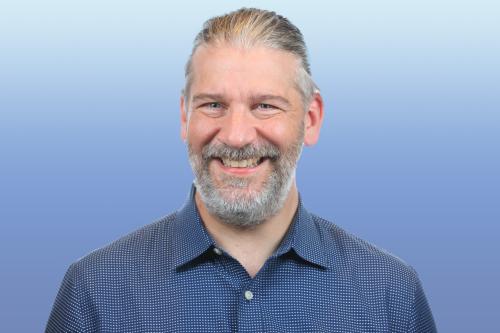Conversations I’m Eager to Have at NISO Plus 2025
Letter from the Executive Director, February 2025
Over the past seven decades, NISO and NFAIS have hosted an annual gathering to explore the many confounding issues in information distribution and set forth community goals to advance technology applications to address them. Since 2020, the annual NISO Plus conference has built on this tradition, with the support of our many sponsors. The conference is designed around the idea that conversations lead to projects, which then lead to the solutions that improve information exchange for everyone.
We have had a lot of success over the past five years advancing ideas in the community, including improving information about retractions and data citation metadata management, as well as organizing work on package identification and author name changes. Each of these voluntary efforts takes time and resourcing, which can sometimes be a challenge. Finding the right mix of scope, community engagement, motivation, and resources is the challenge of standards development. However, when all the stars align it can be among the most rewarding parts of NISO standards work.
We at NISO expect the coming conference to continue the tradition of previous meetings. Looking through the program, I have picked out some conversations I am keen to be involved in. During the sessions, I am looking forward to discussion on whether there are ways NISO can support advances in our community related to these topics.
The conference will start with three pre-conferences, including the JATS-Con meeting, which we are bringing back together in person for the first time since 2019. Since 2010, JATS-Con has been an opportunity for those using or considering the Journal Article Tag Suite (JATS) system for production to learn and share how markup and semantic tagging of content can support better scholarly communications. Accessibility of scientific content has been a focus for NISO and our partners at W3C and the DAISY Consortium, and there are two conversations planned around improving accessibility of content through the JATS models. I’m also keen to hear where we can take the JATS4R Accessibility Recommendations and what more needs to be done around representation of mathematics in JATS.
As with the 2024 conference program, there is a lot to discuss around artificial intelligence systems.Over the past two years, trust and transparency in the use of AI have been critical topics.This year, a conversation led by University of Waterloo’s Dr. Kari Weaver session on the Artificial Intelligence Disclosure (AID) Framework is one that I look forward to tracking. That important discussion will focus on what the AID Framework is, the kinds of disclosure statements needed, how the framework can be adapted, and other criteria to consider.
Continuing with the topic of AI, another conversation led by Russell Michalak, Director of Library and Archives at Goldey-Beacom College, will explore metadata models related to describing and discovering Generative AI content. The need for improved metadata that captures the role of GenAI in content creation and disclosure in information management systems is another interesting lens through which to view this changing landscape and its impact on how repository and discovery systems will have to interact with machine-generated content.
On the subjects of trust and integrity, another session will focus attention on the challenge of verifying researcher identity. Building on work by the STM Association, this session will explore how to apply more stringent verification processes in the peer review and publication processes. Here there are important questions around investment, value, and feasibility that need to be worked through if these recommendations are to be implemented widely. However, we need to be more robust than we have been in validating researcher identity.
Implementation of open access continues to be a topic that requires a lot of discussion. This year, Dr. Michelle Urberg (LibLynx) and Athena Hoeppner (University of Central Florida) will host a discussion of questions around assessing the impact and value of open access content sharing. Focused conversations about the metadata necessary to track and generate meaningful reports of impact are necessary, and it will be fascinating to see where these conversations lead.
It’s not too late to join us in Baltimore, but even if you’re not able to attend the NISO Plus 2025 conference, I encourage you to explore the topics that will be discussed. For some of the conversations that start at NISO Plus, there will be a vibrant series of follow-up meetings to advance the topics. We will also continue the discussions virtually: NISO Plus Global Online, taking place in September, will be an opportunity to consider our progress in taking these ideas forward. It will also be an opportunity to move these ideas to a worldwide forum. For now, I am excited about the prospects of seeing people in Baltimore and engaging in lively conversations around the topics above. I look forward to seeing you there.
Sincerely,
Todd A. Carpenter
Executive Director, NISO
